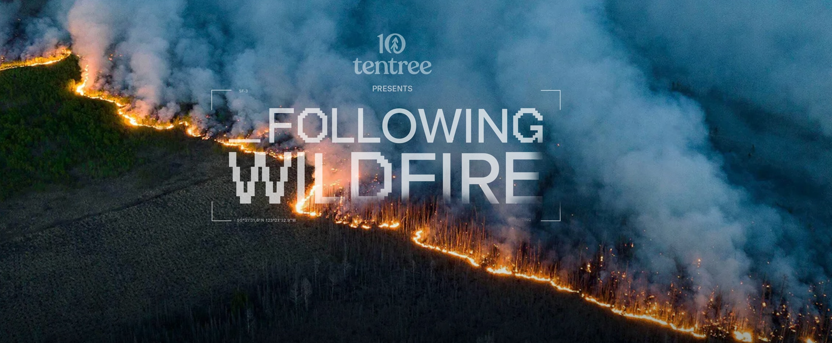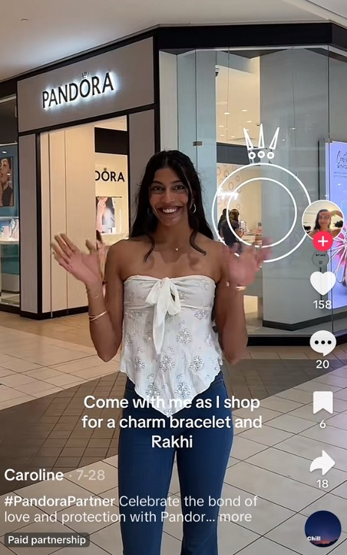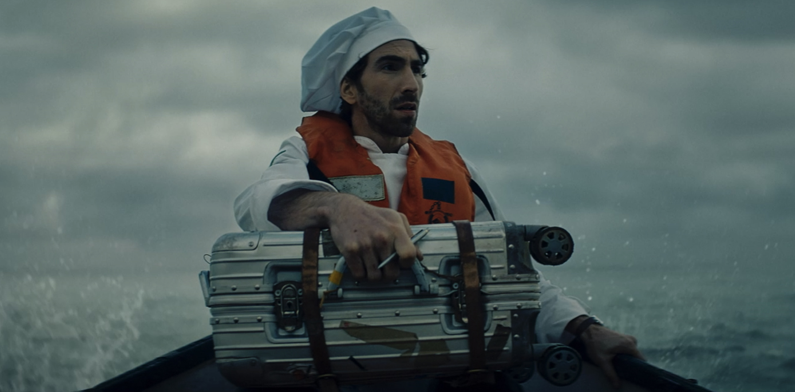
Dentsu Canada’s AI-enabled Following Wildfire platform for Tentree detected early warning signs of potential wildfires by crowdsourcing social media. The algorithm prevented 211 potential fires.
In a marketing world shaped by data, Dentsu Canada is proving that technology alone isn’t enough – it’s the human touch behind the algorithm that makes transformation possible. Guided by its 150-year-old philosophy of creating value for clients, society and employees alike, the agency is helping brands navigate the Algorithmic Era with AI-driven strategies and client-centric creativity that spark real transformation.
“AI is ushering in a new era of marketing in which brands are going to have to transform the way they connect to consumers,” says Stephen Kiely, CEO, Dentsu Canada. “We’ve made moves that position us to help brands navigate that world.”

By 2027, algorithmically enabled ad spending is estimated to reach 79% of total ad spend, he says. So, to capture that spend, Dentsu is tapping its strengths in audience-building strategies, insights, data and analytics and turning AI into a competitive advantage for brands.
It did so for sustainable clothing brand Tentree, which has had reforestation at the heart of its strategy since 2015, when it started planting trees in wildfire-affected areas of Canada. When Tentree turned to Dentsu to find a way to prevent the next fire, the agency created an AI-enabled platform called Following Wildfire that crowdsourced photos on social media to detect early warning signs of potential wildfires.
As most wildfires start in recreational areas and not deep in the woods, the algorithm had to be trained to understand “the difference between a marshmallow cookout and a potential fire,” Kiely says. It scanned 24,233 photos and detected 211 potential fires, protecting more than 10,200 acres of forest. Beyond being good for nature, the effort led to an 85% increase in organic search volume for Tentree, 68 million earned media impressions and a 62% rise in awareness of Tentree as a sustainable brand.
For Pandora, Dentsu combined AI, automated analytics and its proprietary audience analytics tool CCS to grow the jewelry retailer’s profile in the South Asian community, starting with a test location.

To grow Pandora’s profile in the South Asian community, Dentsu built a unique campaign around Raksha Bandhan, a Hindu festival that celebrates the bond between sisters and brothers. A 360-degree campaign for the jewelry retailer’s Brampton store led to a 27% increase in same store sales.
To drive more foot traffic and sales, Dentsu’s media creative and Pandora’s go to market teams built a unique campaign around Raksha Bandhan, the holiday celebrates the bond between sisters and brothers. Dentsu created a 360-degree campaign that included in-store activations and used influencers to drive awareness and social media. The Pandora store saw a 27% increase in same store sales and a 19% boost in basket size during the campaign period.


For the launch of Subway’s Globally Inspired menu, Dentsu created “Chef John” and featured him on a worldwide quest to find bold new flavours. Intent to visit Subway, especially among non-visitors, grew significantly.
When Subway launched its Globally Inspired menu, Dentsu applied its new “One Dentsu” organizational model in Canada – a holistic approach that unifies research, insights, audience planning and technology to power integrated media, creative and social work.

Dentsu Canada believes its work should be underpinned with a strong connection to doing good for society. About 4,000 hours annually of employee time is committed to outside causes.
Dentsu created a fictionalized “Chef John” and sent him on a globe-trotting quest to find bold new flavours (based on the real-life adventures of Subway chef John Botelho). The campaign resonated with both loyal and new customers and strengthened brand cues. Social followers increased 24% and there was 80% brand recognition among those who recalled the ad, exceeding the 60% norm. Intent to visit Subway, especially among non-visitors, grew significantly.
Kiely says the Japanese-based agency’s 150-year-old philosophy of sanpo-yoshi – the idea that business should benefit the company, clients and society – permeates Dentsu Canada’s culture. For clients, it means Dentsu focuses on doing its best work and creating meaningful value. Not surprisingly, it’s an approach that has earned Dentsu supplier of the year honours from several clients, including Kraft and GM.
Sanpo-yoshi also shows in Dentsu Canada being named one of the GTA’s top employers (2025) for the second year running, thanks to initiatives like offering its nearly 1,100 employees two paid volunteer days each year.
That spirit of meaningful renewal extends to the top. Kiely, who recently returned to CEO, says the agency has become invigorated with several high-profile leadership hires, including Christine Saunders as CEO of the media practice and Ari Elkouby as chief creative officer.
Kiely says each of these new leaders bring fresh energy and expertise to the agency. “Client centricity is at the heart of each of their DNAs,” he says.
CONTACT:
Kate Dobrucki
Chief communications officer
Kate.dobrucki@dentsu.com
The 2025 A-Listers:
Zulu Alpha Kilo: Connecting creativity and impact
Mosaic: An era where anything’s possible
Agnostic: Rewriting narratives in service of the work
Weber Shandwick: Where culture, creativity and tech collide
VML: Creating something entirely new
Lifelong Crush: Sparking long-term devotion
C&B Advertising: Leading with emotion
PHD Canada: An intelligent transformation
The Hive: Doubling down on beating boring




















